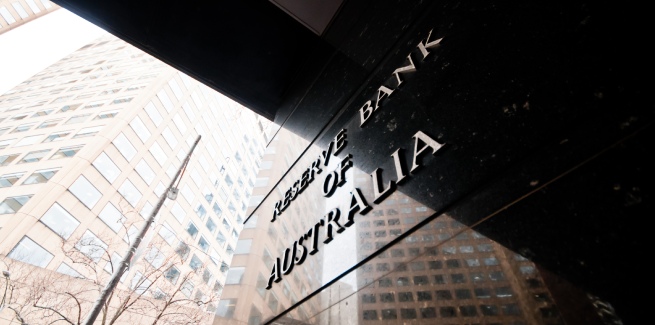During the Australian Banking Association Business Summit on Friday (11 March), the Reserve Bank of Australia (RBA) governor was asked if he felt pressure to pick up the cash rate, as economists have increasingly speculated on the next movements.
Some players in the market have forecast the cash rate movement could happen around August to September, or as soon as June.
At the same time, other central banks have begun to lift their cash rates, including the Bank of England and the Reserve Bank of New Zealand, while the Federal Reserve is expected to soon follow.
Dr Lowe commented that while the push to raise rates made for “great media stories”, he did not feel pressured.
“I don’t feel a mounting pressure. Each day, we sit down here, [and say] ‘what’s the right thing to do?’” Dr Lowe said.
“We have the Reserve Bank board meeting once a month. We sit down, we review the information and discuss well, ‘what’s the right thing to do?’ And when we’re having those discussions we put aside the external noise because we know people always have views.
“We respect those views. And we talk about them. But we do what we think is the right thing at each of our meetings.”
At its last monetary policy meeting, the Reserve Bank of Australia maintained the cash rate at its current record low level of 0.1 per cent.
Previously, Dr Lowe has talked about the importance of achieving the right timing for moving the cash rate. He has flagged that a rate increase in 2022 could be “plausible” but not guaranteed.
But, the last time the Reserve Bank raised rates was in November 2010.
The governor acknowledged that there are a lot of borrowers who have taken out mortgages in the 11 years since, and they have never experienced a rate hike.
“For many borrowers that’s going to come as quite an unwelcome development,” Dr Lowe told attendants at the ABA summit.
But the RBA has expressed that borrowers would weather a rate rise, after limiting their spending through COVID-19.
“There’s almost $250 billion of additional savings over the past couple of years. That’s a huge amount of money,” Dr Lowe said.
“The median borrower now is two years ahead on their mortgage payments. Four or five years ago the median borrower was one year ahead in their mortgage payments, so that’s a big shift from one year to two years in just a short period of time.”
Not everyone has been able to build a large cash buffer, with some still in difficulty, but most borrowers would be in a more resilient position than two years ago, he asserted.
Since the onset of the pandemic, the Reserve Bank has said it will not increase the cash rate until annual inflation is “sustainably” within the 2 to 3 per cent target range.
However, the invasion of Ukraine and subsequent sanctions against Russia have created a supply shock, jacking up the prices of commodities such as gas and oil, as well as disrupting supply chains.
In underlying terms, inflation in Australia is at its highest since 2014, having reached 2.7 per cent in the 12 months to December.
The parameter had already been moving at a faster pace than the RBA previously expected, before the Ukraine war added more uncertainty.
But for the RBA to be satisfied that inflation will be sustained within the target range, it has aimed for annual wages growth to surpass 3 per cent. Last year, the wage price index rose by 2.3 per cent.
But Dr Lowe has only expected a “steady, gradual increase” in wages.
His central scenario is that inflation will be higher for some time as prices continue to pick up. But price levels are expected to level out and drift back down, with inflation tipped to also lower if wages don’t accelerate.
“Whether it comes back down really depends on what happens in the labour markets,” Dr Lowe explained.
“If the period of high inflation – I think we’re going to see CPI [consumer price index] inflation numbers with a four in front of them – if that leads to a big shift in wage demands and those wage demands are successful, then we could see persistently higher inflation rate. That would have implications for interest rates.
“But it’s entirely possible that this level shift occurs, we have higher inflation for a while and if wages don’t move too much, then we come back down again.”
Lowe ‘shocked’ at deputy governor’s departure
Dr Lowe also revealed that he had no prior inkling that his second in command, deputy governor Guy Debelle, would resign last week.
Dr Debelle will leave after 25 years with the central bank, to become chief financial officer at the renewable energy arm of Fortescue Metal Group.
“I found out earlier just this week, it came as a surprise to me. We’ve worked very closely on issues over the last 25 years and I was just as shocked as everyone else,” Dr Lowe said.
Treasurer Josh Frydenberg will be responsible for appointing Dr Debelle’s replacement.
“There are multiple strong internal candidates. It will be up to the Treasurer whether he wants to choose one of them or he wants to choose someone outside of the bank,” Dr Lowe said.
[Related: RBA governor says 2022 rate hike is ‘plausible’]
 ;
;
